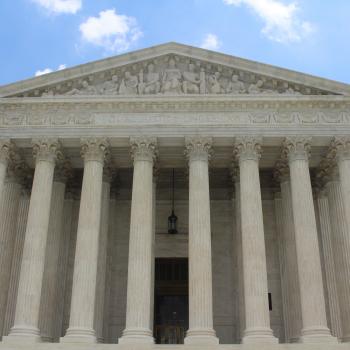This should give all of us pause.
Ricky Jackson walked out of jail in Cleveland, Ohio today after spending 39 years on death row, making him the longest-held prisoner to be exonerated in the United States.
Ricky Jackson was just 18 years old when he and two others, Wiley and Ronnie Bridgeman, were convicted in the 1975 murder of Harold Franks after 12-year-old Eddie Vernon testified he saw the attack. All three men were sentenced to death. Mr. Jackson’s death sentence was vacated and the Bridgemans’ sentences were overturned when Ohio’s death penalty was found unconstitutional in 1978. Ronnie Bridgeman was released after serving more than 25 years in prison and is now seeking to clear his name; Wiley Bridgeman was freed today.
Prosecutors dropped the charges against Ricky Jackson after Eddie Vernon recanted and admitted that he did not witness the crime at all. Vernon said a friend had given him the men’s names, and after he told authorities the names and that he’d seen the killing, Cleveland police fed him information about the crime and what happened. Several people confirmed the boy was on a school bus nowhere near the crime scene at the time of the crime.
No other evidence linked the men to the murder. A gun and car seen at the crime scene were linked to a man who was arrested in 1978 for another murder, but he was never charged in Franks’ murder. In dropping the charges against Jackson, Cuyahoga County Prosecutor Timothy McGinty said, “The state is conceding the obvious.”
Ricky Jackson will be the 148th person exonerated from death row in the U.S. since 1973, the fifth in 2014, and the seventh in Ohio since 1973.
The fact that Mr. Jackson was sentenced to death despite his innocence adds to the growing body of evidence demonstrating unreliability and arbitrariness in death penalty cases.
Lest we forget, from the catechism:
Assuming that the guilty party’s identity and responsibility have been fully determined, the traditional teaching of the Church does not exclude recourse to the death penalty, if this is the only possible way of effectively defending human lives against the unjust aggressor.
If, however, non-lethal means are sufficient to defend and protect people’s safety from the aggressor, authority will limit itself to such means, as these are more in keeping with the concrete conditions of the common good and more in conformity to the dignity of the human person.
Today, in fact, as a consequence of the possibilities which the state has for effectively preventing crime, by rendering one who has committed an offense incapable of doing harm – without definitely taking away from him the possibility of redeeming himself – the cases in which the execution of the offender is an absolute necessity “are very rare, if not practically nonexistent.”












